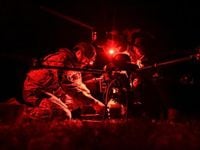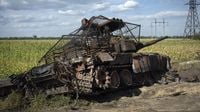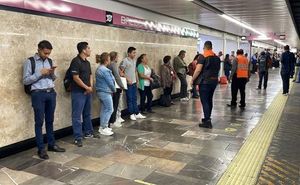Russian Foreign Minister Sergey Lavrov announced on April 29, 2025, that Russia supports direct negotiations with Ukraine without preconditions, a statement that sharply contradicts Kyiv's call for a 30-day temporary ceasefire. Speaking at a press conference in Rio de Janeiro, Brazil, following a BRICS foreign ministers' meeting, Lavrov emphasized that Moscow views the proposed ceasefire as a precondition rather than a genuine step towards peace.
Lavrov's remarks come amid ongoing tensions and violence between the two nations, with Russia recently capturing the Ukrainian village of Doroshivka in the northeastern Kharkiv region. He stated that Russia has previously declared unilateral ceasefires, which Ukraine allegedly used to bolster its military capabilities. "Vladimir Putin supported this idea, but said that it should be formulated in such a way that it would not fail, like all previous attempts of this kind," Lavrov explained.
He further criticized Ukraine for failing to comply with the Easter ceasefire announced by Putin and noted that Kyiv has yet to clarify its stance on another Russian peace initiative that aims for a cessation of hostilities during the 80th anniversary of World War II.
In the context of the ongoing conflict, Russian drone attacks have resulted in significant casualties in Ukraine. On the same day as Lavrov's announcement, reports emerged of drone strikes in Kharkiv and Dnipro, which killed at least one person and injured 38 others, including two children. A tragic incident in Dnipropetrovsk saw a 12-year-old girl lose her life due to a drone attack, further highlighting the dire humanitarian situation.
Ukrainian officials responded to the escalating violence by ordering the evacuation of seven villages in Dnipropetrovsk, areas that were previously considered safe but are now threatened by advancing Russian troops. Meanwhile, Ukrainian Prime Minister Denys Shmyhal reported that the country has lost nearly half of its domestic gas production during the winter due to Russian strikes, stressing the need for resilience and recovery.
Ukrainian President Volodymyr Zelenskyy has continued to advocate for a complete and unconditional ceasefire, especially in light of Russia's recent declaration of a three-day truce from May 8-10 to commemorate the Soviet Union's victory in World War II. Zelenskyy warned that Russia is "preparing something" in Belarus this summer, raising concerns about potential new military escalations.
In a related development, US Secretary of State Marco Rubio indicated that the United States might step back as a mediator unless both Russia and Ukraine present concrete proposals to end the conflict. He emphasized that the US is seeking a "complete, durable ceasefire" rather than a temporary halt. The urgency of the situation is underscored by UN political affairs chief Rosemary DiCarlo, who welcomed the intensified efforts for negotiations, stating they offer a "glimmer of hope for progress towards a ceasefire and an eventual peaceful settlement."
As these diplomatic discussions unfold, North Korea has confirmed for the first time that it has deployed troops to assist Russia in its military operations against Ukraine. According to South Korea’s National Intelligence Service (NIS), approximately 600 North Korean soldiers have been killed in the conflict, with around 4,700 casualties reported overall, including injuries.
North Korea's involvement is part of a broader military cooperation agreement established in a landmark 2024 defense treaty between Pyongyang and Moscow. Kim Jong-un announced the troop deployment to "annihilate and wipe out the ... occupiers and liberate the Kursk area in cooperation with the Russian armed forces." This announcement coincided with Russia's claim that it has successfully removed Ukrainian troops from the Kursk region, a statement that has not been independently verified.
The NIS also revealed that North Korea has sent about 15,000 laborers to Russia as part of bilateral industrial cooperation programs. In exchange, Russia has reportedly provided North Korea with military equipment, including air defense missiles and drones, which have reportedly improved the combat capabilities of the North Korean military.
As the situation continues to evolve, both Russia and Ukraine remain entrenched in their positions, with accusations flying over civilian casualties and military actions. France and the United Kingdom have criticized Russia's conduct, while also praising the US's role in mediation efforts. Meanwhile, Moscow has denied allegations of targeting civilians, insisting that its military operations are aimed at achieving specific strategic objectives.
The international community watches closely as the conflict persists, with humanitarian concerns growing amid the violence. The UN has called for urgent action to address the humanitarian crisis unfolding in Ukraine, as civilians bear the brunt of the ongoing hostilities.
In summary, the complex interplay of military actions, diplomatic negotiations, and international responses continues to shape the landscape of the Russia-Ukraine conflict. As both sides prepare for what may be a pivotal moment in the ongoing war, the hope for a peaceful resolution remains tenuous at best.





